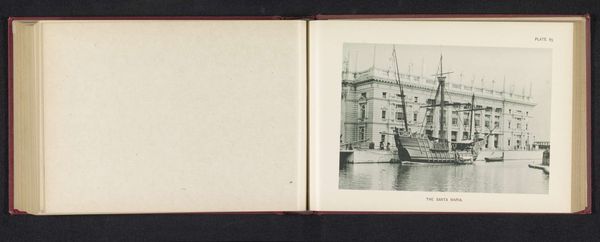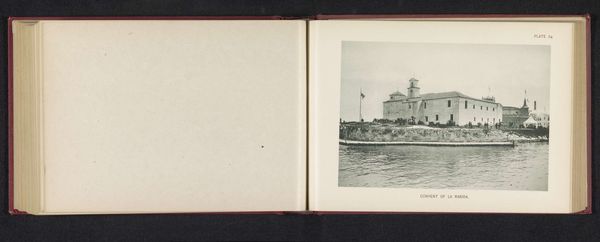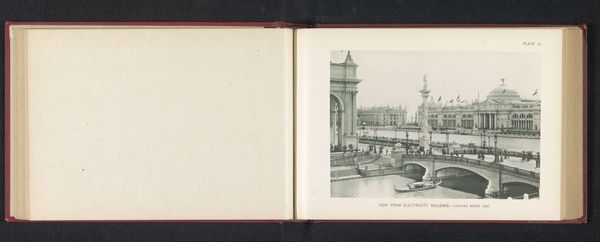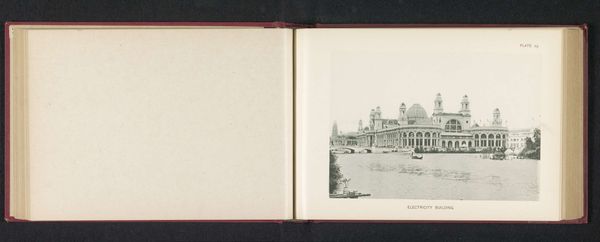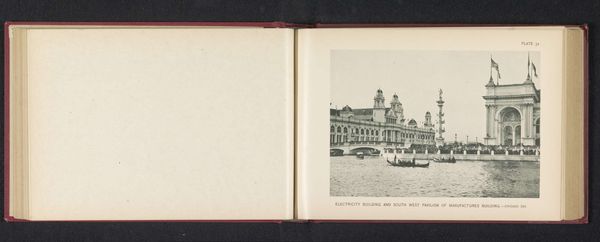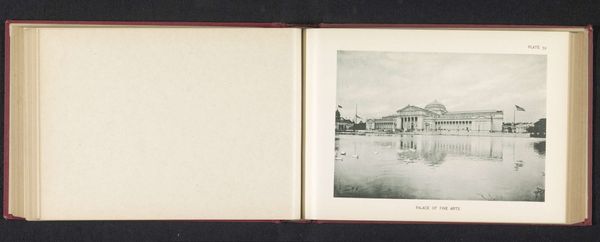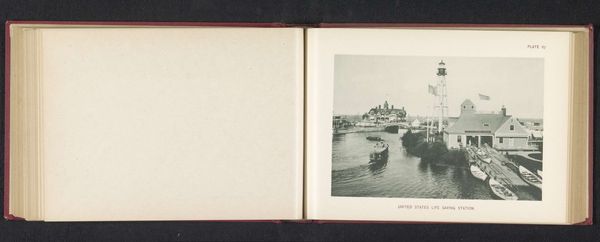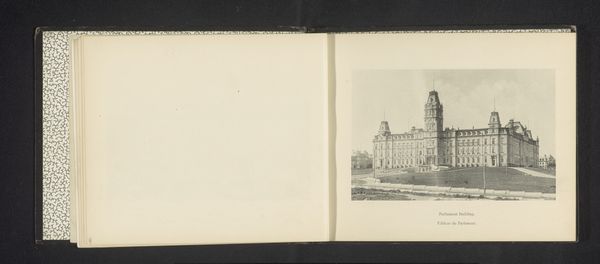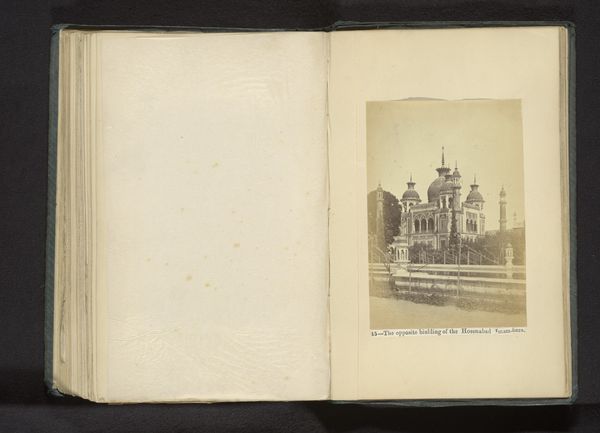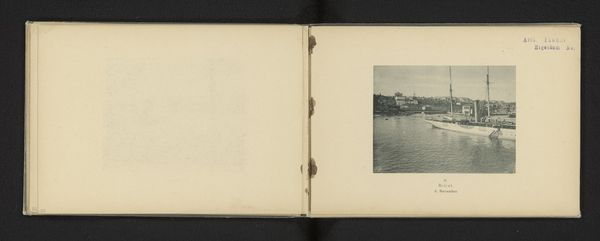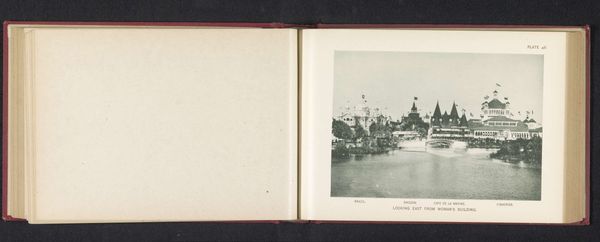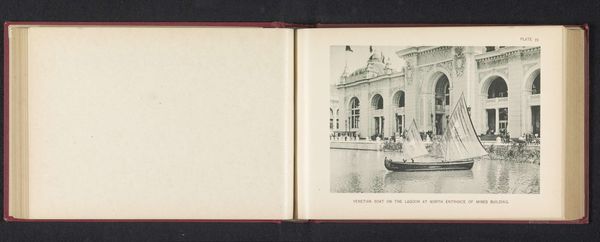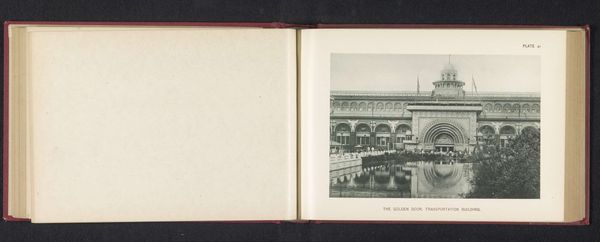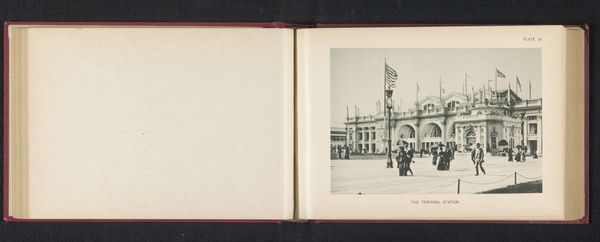
Paviljoen van de firma Krupp met wapens op de World's Columbian Exposition in Chicago in 1893 1893
0:00
0:00
#
aged paper
#
homemade paper
#
sketch book
#
personal sketchbook
#
hand-drawn typeface
#
journal
#
coloured pencil
#
sketchbook drawing
#
sketchbook art
#
historical font
Dimensions: height 133 mm, width 191 mm
Copyright: Rijks Museum: Open Domain
Charles Dudley Arnold captured the Krupp Pavilion at the World's Columbian Exposition in Chicago in 1893. It shows the imposing architecture of the Krupp Pavilion, adorned with flags that celebrate industrial might. These flags are not mere decorations; they echo ancient heraldry, symbols of power and dominion. Think back to medieval banners leading armies, or the standards of the Roman legions—visual assertions of authority and control. Here, they represent the industrial power of the Krupp company. Consider the swastika, once a symbol of well-being, which later became a powerful emblem of Nazi Germany. Its transformation underscores how symbols, like restless spirits, can be imbued with new, often contradictory, meanings over time, shaped by cultural and historical forces. This display, while seemingly benign, carries an unconscious weight. The collective memory of conflict and conquest is ever-present, influencing our response to these emblems of industrial strength. The pavilion, with its flags, engages us on a deep, subconscious level, stirring emotions tied to our shared past and the cyclical nature of power throughout history.
Comments
No comments
Be the first to comment and join the conversation on the ultimate creative platform.
